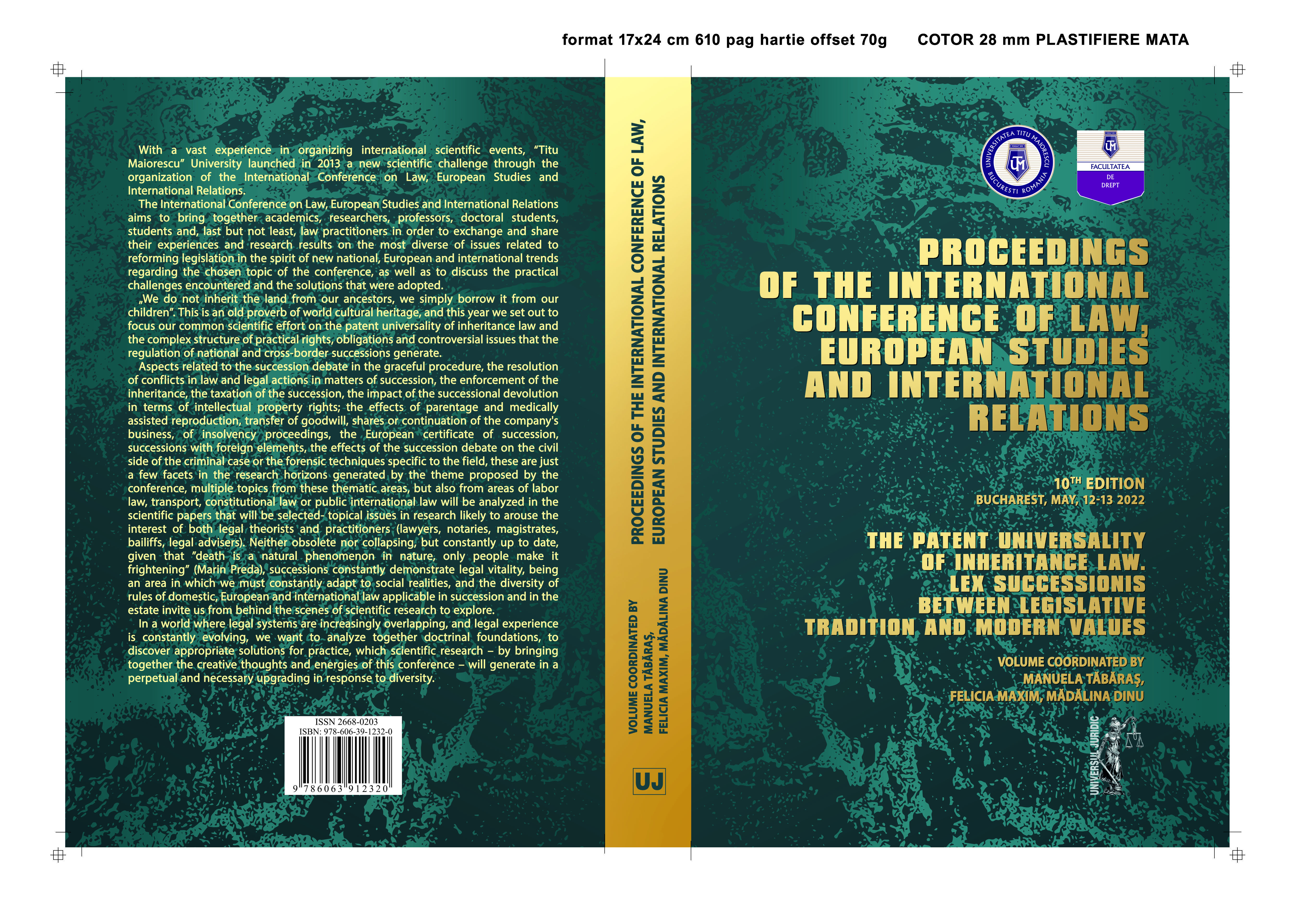THE SUCCESSION OF STATES ACCORDING TO TREATIES ADOPTED AT THE INTERNATIONAL LEVEL
THE SUCCESSION OF STATES ACCORDING TO TREATIES ADOPTED AT THE INTERNATIONAL LEVEL
Author(s): Titi SultanSubject(s): Law, Constitution, Jurisprudence, Civil Law
Published by: Universul Juridic
Keywords: international legal personality; the state; international organizations; the succession of states to treaties; diplomacy; dismemberment; the status of the individual; other international entities;
Summary/Abstract: At the moment when transformations occur in the existence of states consisting in the substitution of a new sovereignty for the existing one, the question arose whether and under what conditions the existing rights and obligations are taken over by the new sovereignty.1 The classical doctrine of international law (Grotius, Puffendorf, Vattel) framed this issue in the institution of civil law succession, mechanically transposed from private law to public international law. In contemporary international law, it has clearly emerged that what continues to be conventionally called the succession of states does not represent a successional transmission, but a substitution of sovereignties. This doctrinal clarification of indisputable main value that modifies the solutions reached by the practice of the states, solutions that are generally divided into two large categories, depending on the concrete circumstances of the succession and the field in which it is produced: the rights and obligations of the predecessor state are not automatically transferred to the successor state, the former being the only one entitled to decide which of them it understands to take over after making a tabula rasa (clean slate); the transmission of such rights and obligations by applying the principle of continuity. It is also noted that the theory of the succession of states was considered as the most controversial part of international law, within which few rules of international law with a supplementary character were formed, the solutions being found in the regulations of the agreements applicable from case to case. However, the problem of codifying this matter became a priority for the international community, finalized with the conclusion in 1978 of the Vienna Convention on the Succession of States to Treaties and the elaboration of a project – in first reading – regarding the succession of States in matters other than treaties and, mainly, to state goods and debts. In the context of the succession of states, the issue of whether its rules also apply to membership in international organizations was also examined. The solutions given by practice converge in the sense that the successor state (the one that replaced another state) does not automatically acquire the membership status of the predecessor state (the state it replaced).
Journal: Conferința Internațională de Drept, Studii Europene și Relații Internaționale
- Issue Year: XII/2023
- Issue No: XII
- Page Range: 443-454
- Page Count: 12
- Language: English

